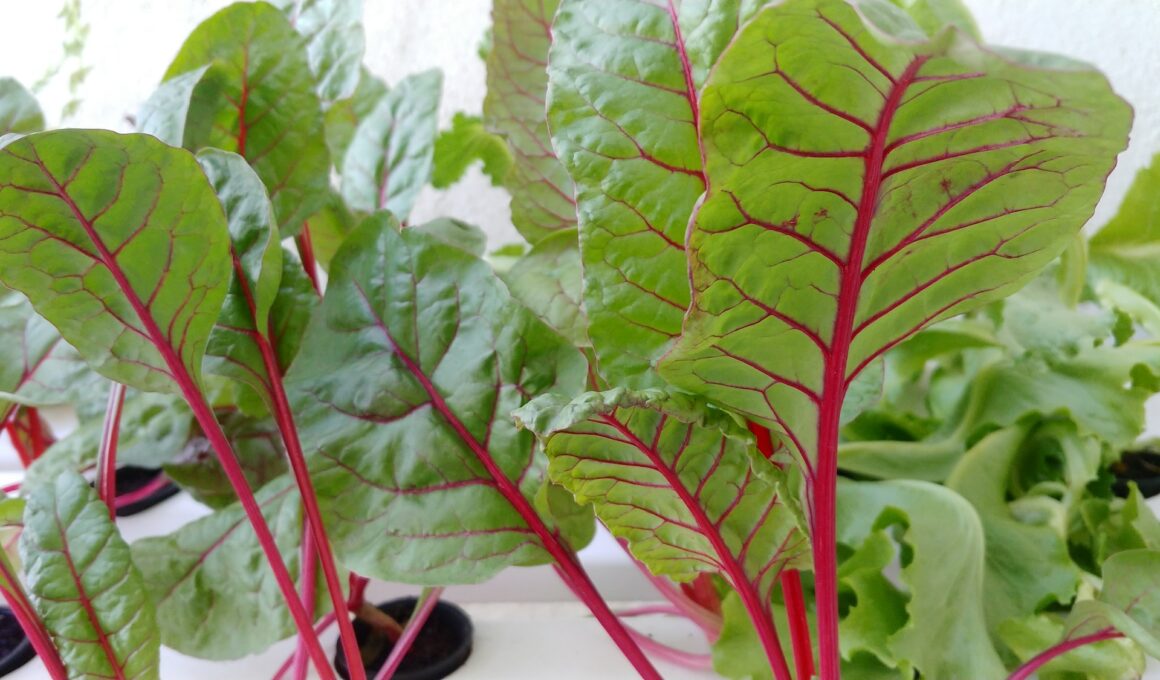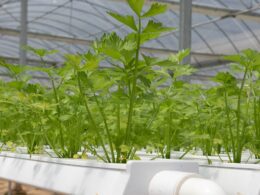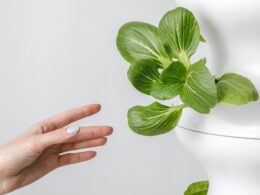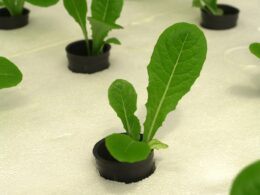Are you experiencing an unpleasant odor in your hydroponic system? It’s important to understand the reasons why this might be happening. Not only can the smell be bothersome, but it can also indicate potential problems that could harm your plants.
In this article, we’ll explore the reasons for unpleasant odors in hydroponic systems, the negative effects they can have, and preventative measures and remedial actions you can take to enjoy a healthy and pleasant hydroponic growing experience.
Hydroponic systems provide a controlled environment for growing plants without soil. However, this doesn’t mean that the water used in these systems will always be odorless. In fact, there are several reasons why your hydroponic water may start to smell. Understanding these reasons can help you identify and address the issue before it negatively affects your plants.
So, let’s dive in and explore why your hydroponic water might be smelling and what you can do about it.
Reasons for Unpleasant Odors in Hydroponic Systems
If you’re tired of holding your nose around your hydroponic setup, you might want to know what’s causing those funky aromas. Common causes of unpleasant odors in hydroponic systems include organic matter buildup, anaerobic conditions, and root rot.
Organic matter buildup occurs when dead plant material or uneaten nutrients accumulate in the water. This can lead to the growth of bacteria that produce foul-smelling compounds.
Anaerobic conditions occur when there is not enough oxygen in the water. This can cause the growth of bacteria that produce hydrogen sulfide, a gas with a rotten egg smell.
Root rot is a fungal disease that can cause a foul odor.
To eliminate unpleasant odors in your hydroponic system, there are several techniques you can use. One technique is to maintain proper water levels. If the water level is too high, it can cause anaerobic conditions. If the water level is too low, it can cause the roots to dry out and die.
Another technique is to regularly clean and sterilize your hydroponic equipment. This can help prevent the buildup of organic matter and the growth of bacteria and fungi. You can also add beneficial bacteria to your hydroponic system. These bacteria can help break down organic matter and prevent the growth of harmful bacteria.
In addition to eliminating unpleasant odors, it’s important to monitor your hydroponic system for signs of problems. If you notice a foul odor, it could be a sign of a more serious problem, such as an infestation of pests or a nutrient deficiency. By taking proactive measures to maintain your hydroponic system, you can ensure that it remains healthy and productive.
The Negative Effects of Hydroponic Water Smell
The unpleasant odor emitted from hydroponic systems can harm the plants and potentially affect the overall quality of the produce. If the water in your hydroponic system smells bad, it could indicate the presence of harmful bacteria, fungi, or other microorganisms that are detrimental to plant growth. These microorganisms can affect the nutrient balance in the water, leading to deficiencies or toxicities that impede the plants’ development.
To fully understand the negative effects of hydroponic water smell, consider the following:
-
Impact on plant growth: As mentioned earlier, bad odors in hydroponic water can indicate the presence of harmful microorganisms that can damage the roots and other parts of the plant. This can cause stunted growth, yellowing leaves, and decreased yields. In severe cases, it can even lead to plant death.
-
Health concerns: Hydroponic systems are designed to provide a controlled environment that’s free from harmful chemicals and pesticides. However, if the water in your system is contaminated with harmful microorganisms, it can pose a risk to your health as well. Consuming produce grown in contaminated water can cause food poisoning, infections, and other health problems.
Therefore, if you notice an unpleasant odor in your hydroponic system, it’s important to take immediate action to identify the source of the problem and rectify it. Regular monitoring of the water quality and maintaining a clean and sanitary environment can help prevent the growth of harmful microorganisms and promote healthy plant growth. Remember, healthy plants mean healthy produce and a healthier you.
Preventative Measures
You can ensure the success of your hydroponic system and keep your plants thriving by implementing preventative measures that promote a clean and fresh environment. This will allow you to harvest bountiful and healthy produce.
One of the most critical steps in maintaining a healthy hydroponic system is to monitor water quality regularly. You should test your water for pH levels, dissolved solids, and other factors that may affect your plants’ growth. If you find any imbalances, you should adjust your water accordingly to ensure that your plants receive the proper nutrients.
Another way to prevent hydroponic water smell is by maintaining the nutrient balance in your system. Adding too much or too little of any particular nutrient can cause your water to develop a strong odor. Make sure to follow the recommended nutrient ratios for your plants and monitor their growth to see if any adjustments need to be made.
Additionally, you can use filters or other treatment methods to keep your water clean and odor-free. By taking these preventative measures, you can keep your hydroponic system running smoothly and avoid the negative effects of hydroponic water smell.
You’ll be able to grow healthy, thriving plants and enjoy the benefits of fresh, homegrown produce. With careful attention to water quality and nutrient balance, you can create an ideal environment for your hydroponic plants to thrive.
Remedial Actions
If you’re experiencing unpleasant odors in your hydroponic water, don’t worry – there are several remedial actions you can take to fix the problem.
Adjusting the water pH, adding oxygen, and using activated carbon are all effective solutions.
By making these simple adjustments, you can ensure that your hydroponic system stays clean and fresh-smelling, allowing your plants to thrive.
Adjusting Water pH
Adjusting the pH level helps keep the water clean and fresh for your plants. The pH level is the measure of acidity or alkalinity in water. In hydroponics, the ideal pH level is between 5.5 and 6.5. If the pH level is too high or too low, it can affect the water quality and nutrient absorption of your plants.
To adjust the pH level, you can use pH adjusters such as pH up or pH down. Follow the instructions carefully to avoid over-adjusting the pH level, which can harm your plants.
Maintaining the correct pH level is important in hydroponics because it helps prevent the build-up of harmful bacteria and algae in the water. Bacteria and algae thrive in water with a high pH level, which can cause foul odors and discoloration of the water. Adjusting the pH level will also help ensure that your plants get the right nutrients they need to grow healthy and strong.
Remember to regularly test the pH level of your water and adjust accordingly to keep your hydroponic system running smoothly.
Adding Oxygen
Incorporating oxygen into your hydroponic system is crucial for promoting healthy root growth and ensuring that your plants receive the necessary nutrients for optimal growth and development. To increase aeration in your hydroponic reservoir, you can add air stones or diffusers to the water. These will help to increase the level of oxygen in the water and improve the overall health of your plants.
You can also use oxygenation techniques to increase the level of oxygen in your hydroponic system. One technique is to use a water pump to circulate the water in your system. This will help to aerate the water and ensure that your plants receive the necessary oxygen for healthy growth.
By incorporating these techniques, you can eliminate the unpleasant smell often associated with hydroponic water and promote a healthier growing environment for your plants.
Using Activated Carbon
Utilizing activated carbon is a highly effective method for enhancing the quality of your hydroponic system. This method helps remove unwanted impurities and creates a more pristine growing environment for your plants. Here are some benefits of using activated carbon in your hydroponic system:
- Activated carbon is a powerful odor absorber, which helps to eliminate the unpleasant smell of stagnant water in your hydroponic system.
- Activated carbon filters out impurities such as chlorine, pesticides, and heavy metals. These impurities can be harmful to your plants and affect their growth.
- When used in conjunction with an air pump, activated carbon can help increase the oxygen level in your hydroponic system. This is essential for plant growth.
There are different types of activated carbon available for hydroponics, including coconut shell, bituminous, and lignite. Coconut shell activated carbon is the most commonly used due to its high adsorption capacity and low ash content. When choosing your activated carbon, make sure to select a high-quality product specifically designed for hydroponic use.
Incorporating activated carbon into your hydroponic system will not only improve the overall quality of your water, but it will also help ensure the health and vitality of your plants.
Conclusion: Enjoying a Healthy and Pleasant Hydroponic Growing Experience
To fully appreciate the benefits of hydroponic growing, you want to ensure a fresh and delightful experience. One of the common issues that can ruin your hydroponic garden experience is the unpleasant smell of the water, which can make it hard to enjoy the fruits of your labor. Luckily, there are ways to make your hydroponic water scent-free, and one of the most effective methods is hydroponic water filtration.
Hydroponic water filtration involves removing impurities, particles, and other materials from the water to ensure that it is clean and fresh. This process can be done using different techniques, such as activated carbon filtration, reverse osmosis, or ultraviolet sterilization. By using a filtration system, you can prevent the buildup of organic matter and other contaminants that cause the water to smell bad and affect the quality of your plants.
Enjoying a healthy and pleasant hydroponic growing experience is possible with proper care and maintenance. Along with hydroponic water filtration, you should also pay attention to other factors that can affect the quality of your plants. These factors include pH levels, nutrient levels, and temperature. By keeping these factors in check and ensuring that your hydroponic system is clean and well-maintained, you can enjoy a flourishing and scent-free hydroponic garden.
Frequently Asked Questions
Can hydroponic water smell like anything other than a bad odor?
If you’re experiencing a bad odor from your hydroponic water, it’s important to understand the impact it could have on your plant growth. Luckily, there are alternative solutions that can prevent this odor from occurring.
One solution is to use an aeration system that continuously circulates the water, preventing the buildup of bacteria and other contaminants that can cause the unpleasant smell. Another option is to add beneficial bacteria to the water, which can help to break down any organic matter and prevent the growth of harmful bacteria.
By taking steps to prevent hydroponic water odor, you can ensure the health and growth of your plants, while also creating a safer and more pleasant environment for yourself.
What are some common mistakes that can lead to unpleasant odors in hydroponic systems?
To prevent unpleasant odors in your hydroponic system, it’s important to avoid common mistakes that can lead to them.
One of the most frequent errors is overfeeding your plants, which can cause excess nutrients to build up in the water and create a foul odor.
Another mistake is not properly cleaning your equipment, which can lead to bacterial growth and unpleasant smells.
Additionally, using poor quality water or not maintaining proper pH levels can also contribute to unpleasant odors in your hydroponic system.
By avoiding these mistakes and practicing proper maintenance, you can keep your hydroponic system odor-free and healthy for your plants.
Can hydroponic water smell affect the taste of the plants grown in it?
If your hydroponic water smells, it can have negative effects on the nutrition and growth of your plants. The smell is often an indication of an imbalance in the nutrients or pH levels of the water.
This can lead to stunted growth, reduced yields, and even plant death. Additionally, the smell can be caused by harmful bacteria or fungi which can further damage your plants.
It’s important to identify and address the cause of the odor as soon as possible to prevent any negative effects on your plants. By maintaining proper nutrient and pH levels, regularly cleaning your system, and using beneficial bacteria, you can ensure that your hydroponic water remains odor-free and your plants thrive.
How frequently should hydroponic water be replaced to prevent unpleasant odors?
To keep your hydroponic plants healthy and thriving, it’s important to regularly replace the water in your system. The frequency of water replacement depends on the size of your system and how many plants you have, but a general rule of thumb is to change the water every two to three weeks.
Not only will this prevent unpleasant odors from developing, but it will also ensure that your plants are getting the necessary nutrients and oxygen they need for optimal growth. Neglecting to change the water can lead to stagnant water, which can harm plant growth and attract harmful bacteria.
So, make sure to keep up with the frequency of water replacement for healthy and thriving hydroponic plants.
Are there any natural remedies for eliminating unpleasant odors in hydroponic systems?
Looking for ways to eliminate unpleasant odors in your hydroponic system? You’re in luck! There are several natural odor eliminators and DIY solutions that you can try.
One option is to add charcoal to your system, which can absorb and neutralize odors. You can also try adding essential oils, such as peppermint or lemon, to your nutrient solution for a fresh scent.
Another DIY solution is to create a mixture of hydrogen peroxide and water and use it to flush your system. This can help eliminate any bacteria or fungus that may be causing odors.
With these simple and natural solutions, you can enjoy a fresh and clean-smelling hydroponic system.
Conclusion
Now that you know why hydroponic water can sometimes smell unpleasant, it’s important to take preventative measures to avoid these issues. Keep your system clean and free of debris, monitor pH and nutrient levels, and avoid overfeeding your plants.
If you do notice a smell, don’t panic. There are simple remedial actions you can take to restore a healthy growing environment.
In the end, a little bit of maintenance and care can go a long way in ensuring a pleasant and thriving hydroponic system. By following these tips, you can enjoy the benefits of hydroponic gardening without any unpleasant odors or negative effects on your plants. Happy growing!








